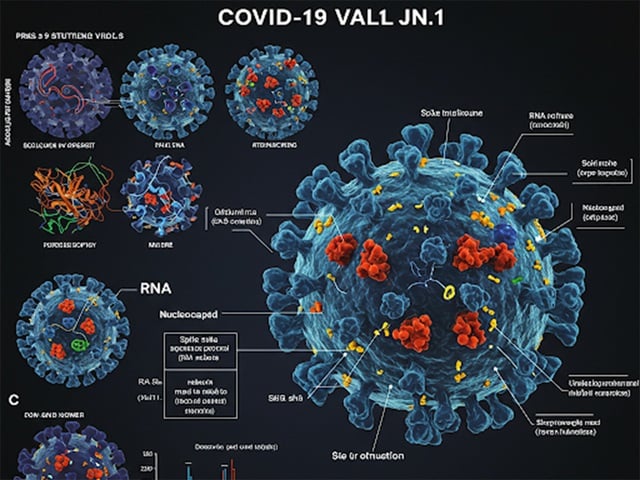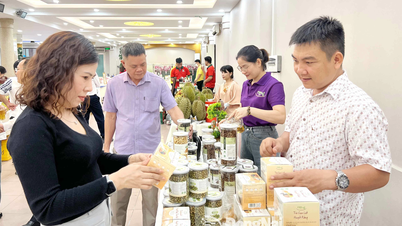>>> Thailand: Covid-19 re-emerges, 16 deaths
The transmissibility of the Covid-19 JN.1 variant remains a concern, as preliminary data suggests increased spread compared to previous strains, according to the US National Institutes of Health's National Library of Medicine (PMC).
Why does the JN.1 variant persist?
According to studies, the reason is due to the unique characteristics of the virus: Increased infectivity and immune evasion. Unlike the early days of the Covid-19 epidemic, the virus has evolved under immune pressure, creating variants with complex mutations such as S456L and L455S on the spike protein. These mutations have a very high ability to evade immunity.
Elderly people, obese people and people with underlying medical conditions should take note because they are more susceptible to infection with the JN.1 variant.
Illustration: AI
JN.1 is a descendant of the BA.2.86 variant, which belongs to the Omicron lineage. The JN.1 spike protein has accumulated more than 30 adhesion-enhancing mutations, with the addition of a new mutation, L455S. This mutation makes the viral spike bind effectively to human cells. This interferes with the ability of antibodies to bind effectively to the virus and block infection. This results in significantly higher infectivity.
Additionally, the mechanism by which JN.1 appears and replicates in human cells is also different. Recent research conducted in Europe and the US has determined that BA.2.86 enters lung cells similarly to pre-Omicron variants such as delta, suggesting the ability to evade the immune system while evolving to find different ways to infect cells and transmit efficiently, according to PMC .
Who needs more attention?
Although less likely to cause severe illness, older adults, obese people and people with underlying health conditions are more susceptible to JN.1 infection.
Patients infected with JN.1 may experience symptoms such as: Sore throat, fever, runny or stuffy nose, persistent dry cough, fatigue, headache, loss of taste, loss of smell, muscle pain, conjunctivitis, diarrhea and vomiting. A more serious respiratory symptom to watch for is difficulty breathing, which requires prompt medical attention.
Prompt testing at the onset of symptoms and self-isolation are important to minimize the spread of JN.1.
The JN.1 variant serves as a reminder of the virus’s adaptability and persistence, highlighting the importance of a multi-pronged approach to combating Covid-19’s mutations.
Source: https://thanhnien.vn/vi-sao-bien-the-covid-19-jn1-ton-tai-dai-dang-185250513135650373.htm























![[Photo] National Assembly Chairman attends the seminar "Building and operating an international financial center and recommendations for Vietnam"](https://vphoto.vietnam.vn/thumb/1200x675/vietnam/resource/IMAGE/2025/7/28/76393436936e457db31ec84433289f72)














































































Comment (0)